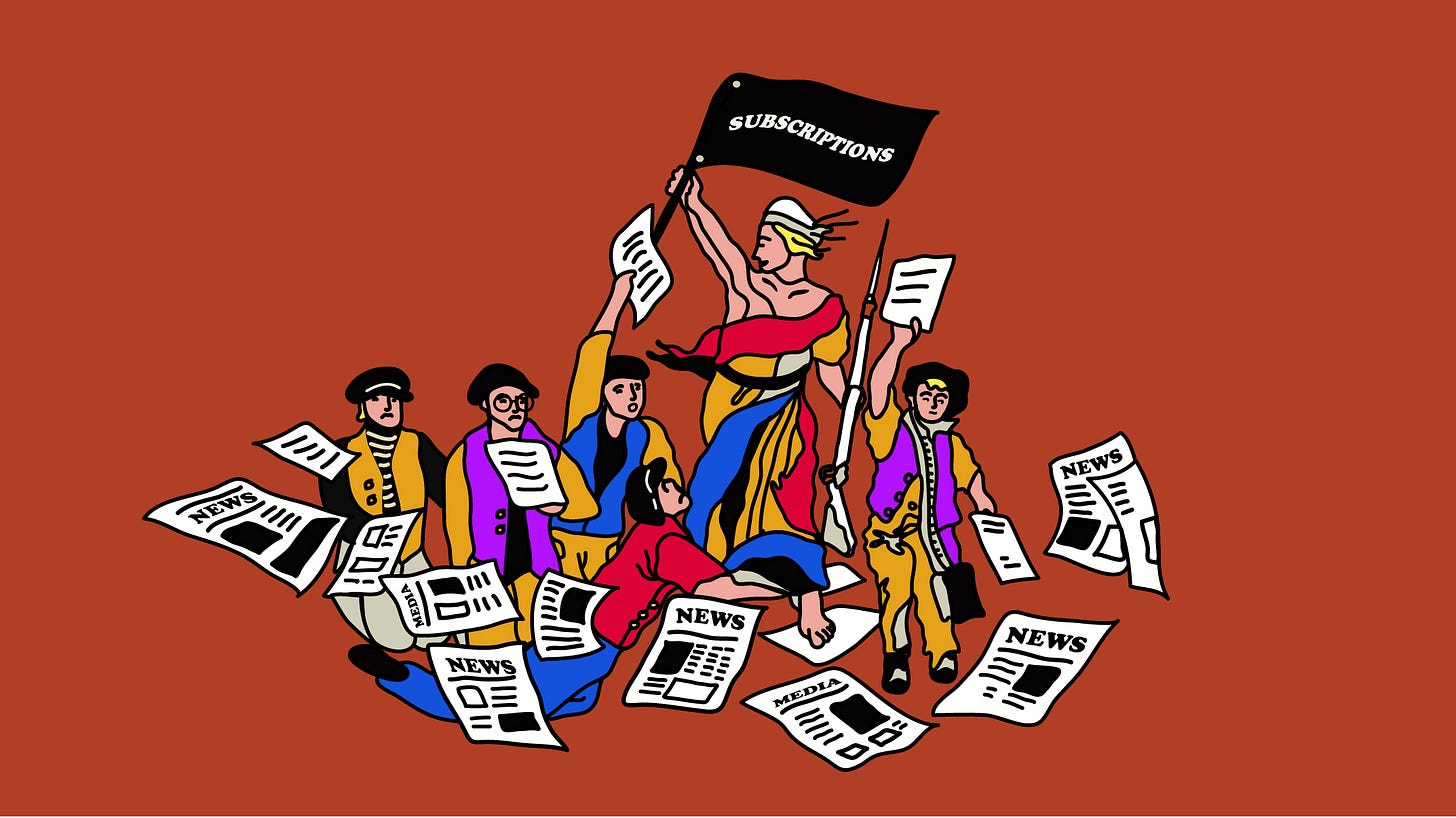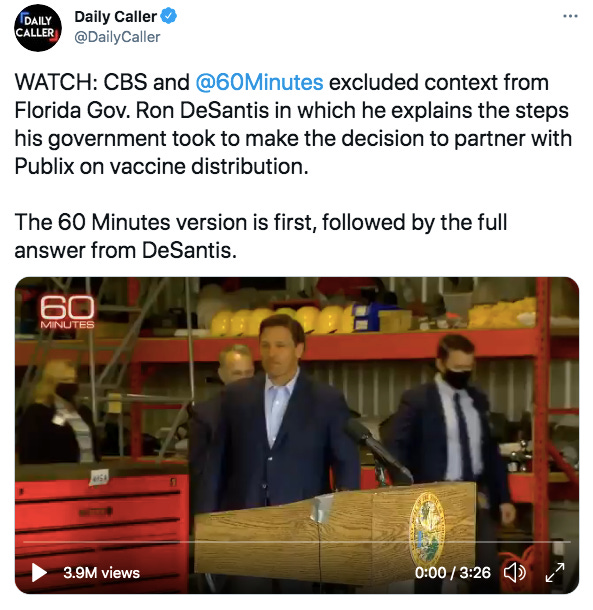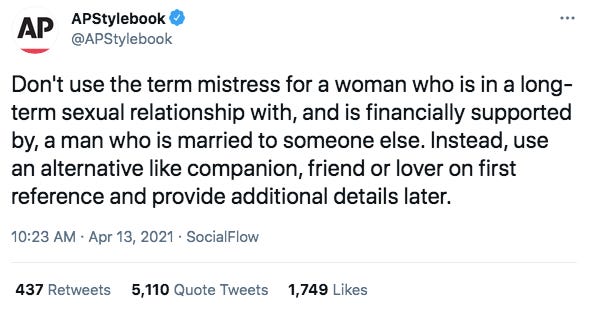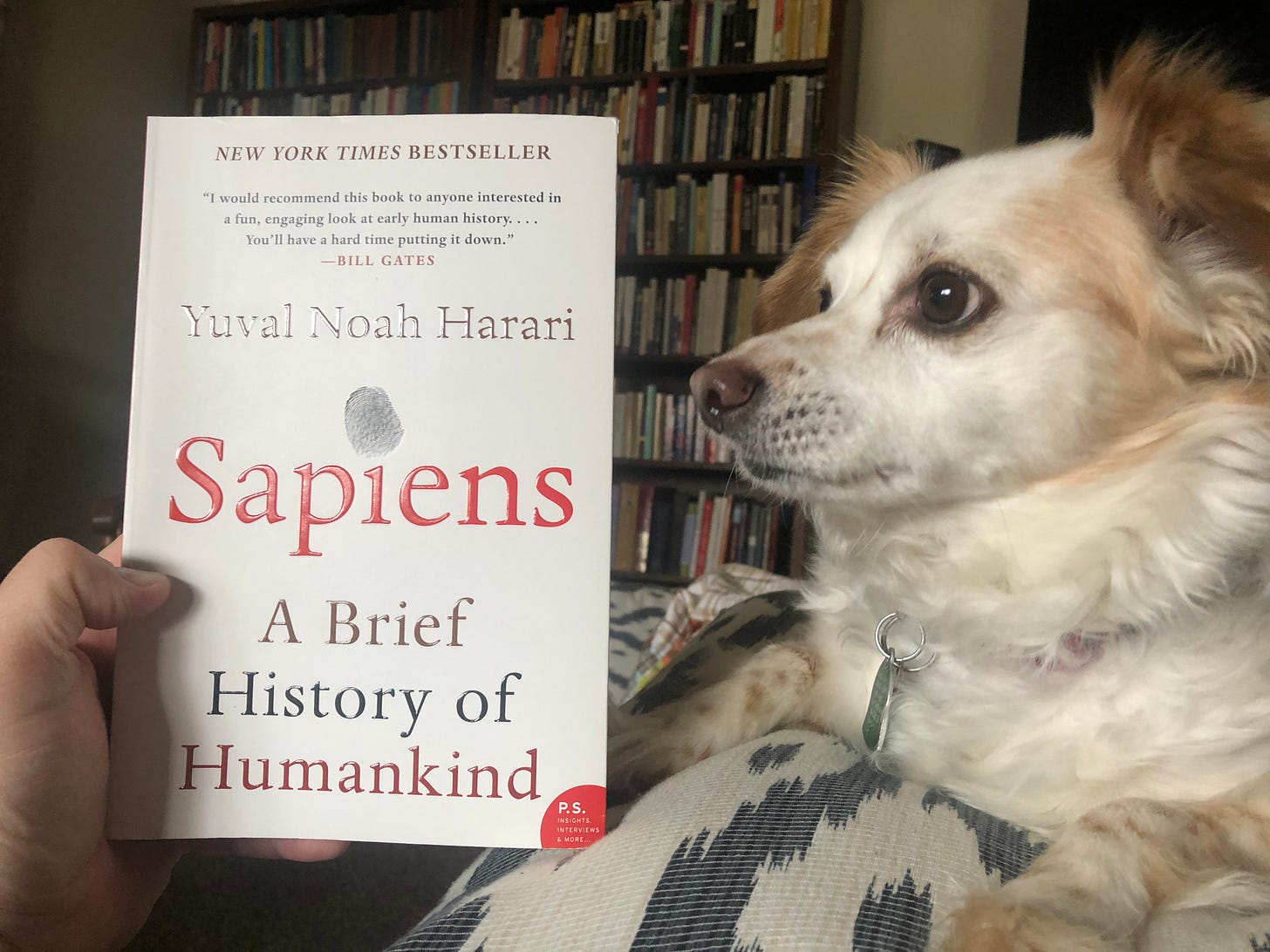Got Some 'Splainin' to Do
Caring about Fairness, Facts, and Truth
Dear Reader,
This week’s Second Drafts is slightly shorter than normal. Though I did a fair amount of writing on what I thought was going to be this week’s feature, I just ran out of time to make it what I want it to be. If the Good Lord’s willing and the creek don’t rise, you should get to read it next week in all its glory. That said, if anyone is overly disappointed with the length of this week’s edition, just let me know and I’ll be glad to credit your subscription by a week.*
Nevertheless, there’s still plenty to read:
I’ve themed the Hot Takes along the lines of what seems to have been a perfect storm of media deceit over the past 10 days. Increasingly, our society is losing its grasp on the very nature and importance of fact and truth. Unfortunately, our media is leading the way.
So as not to leave you completely hanging without a long read, this week’s Post(erity) is worth your time, particularly coming out of the themed Hot Takes. In it, I look back to Memorial Day of 2010 for some reflections on civics, distrust, and how to handle both.
Peaches has a book pick for you.
And, I’ve included a few links at the end - one serious, one seriously awesome - that I encourage you to click and read.
Personally, I’m hanging in there - avoiding the Covid, trying to keep up with Megan and the girls, and working to put together some words worth reading and considering. If I happen to succeed, I’d sure appreciate any help you can lend in sharing this newsletter with others.
As always, thanks for reading,
Craig
*This was a joke. Your subscription is free, so there’s nothing to credit. Thanks for subscribing.
PS: To make up for this week’s missing feature, let me offer up this video of our recent CryoCore Celebration Explosion at Montana Instruments. One of the perks of working with physicists is occasionally getting to chronicle the blowing up of things in honor of a new product release as part of the job. This was one of our better ones.
Hot Takes
With all that’s transpired in the news of late about the news of late, I’ve compiled a set of meta-observations concerning our beloved Fourth Estate that I think hangs together relatively well.
As Glenn Reynolds of Libertarian-leaning Instapundit wrote,
“If you don’t follow the news, you’re uninformed.
If you do follow the news, you’re misinformed.”
Because I’m interested (or masochistic), I do follow the news and work hard not to be (too) misinformed so maybe you don’t have to follow it so much that it drives you to drink (some of you have actually thanked me for this). Since I have time and a relatively unused liver, let me take one for the team with a few media observations.
To start things off, the article, “Why We’re Freaking Out About Substack,” in this week’s New York Times set out to chronicle (and, frankly, diminish) the phenomenon playing out on your screen at this very moment: namely, Substack newsletters and independent news reporters/content creators like me. While I’m not charging anything for my meanderings, plenty of others are for theirs - to the tune of six or even seven figures - and the Times doesn’t approve.
“This new ability of individuals to make a living directly from their audiences isn’t just transforming journalism. It’s also been the case for adult performers on OnlyFans, musicians on Patreon, B-list celebrities on Cameo. In Hollywood, too, power has migrated toward talent, whether it’s marquee showrunners or actors. This power shift is a major headache for big institutions, from The New York Times to record labels. And Silicon Valley investors, eager to disrupt and angry at their portrayal in big media, have been gleefully backing it. Substack embodies this cultural shift, but it’s riding the wave, not creating it.”
I think there’s something else to the shift, something that goes beyond making a living by migrating away from media institutions. That something else is trust. As my friend (and fellow Substack newsletter creator) Seth Hurd wrote this week,
“Legacy media has taken a hit, in my opinion, because consumers now trust individual content creators over institutions. Rather than restore trust and work on the quality of their own product, the NY Times is content to whine about their writers being able to make more money solo, especially as Substack is offering book-advance-like-deals to big names willing to break up with their legacy employers.”
Why this new trust in individual content creators over news institutions?
Oh, yes, I remember now: blatant bias and ideological propaganda.
“In the latest Project Veritas sting video, CNN Technical Director Charlie Chester admits that his network used ‘propaganda’ in an effort to ensure that President Donald Trump lost the 2020 election. Chester takes credit for Trump’s loss and confesses that the network created at least one story that was “all speculation” in order to defeat the president. He also says that as soon as the COVID-19 pandemic tapers off, CNN plans to ‘milk’ climate alarmism for all it’s worth.”
Watch the first video for yourself (filmed on a Tinder date). It’s pretty damning.
But it’s not just CNN that has some journalistic ‘splainin’ to do. Let’s not forget about CBSNews’ 60 Minutes’ attempted hit job on Florida Governor Ron DeSantis. Below is the (deceptively) edited one-minute clip, followed by the unedited footage of the full three-minute answer from the same conference.
Even local Democrats lambasted 60 Minutes for their guerrilla journalism, but none of the so-called “legacy” media cares, as noted in this article, “Why Hasn't the Mainstream Media Pilloried 60 Minutes for Spreading Misinformation?” Answer: Because they do the same thing.
Of course, social media is becoming an increasingly aggressive player with regard to so-called “free speech.” Good news (or not): “You Can Now Appeal for Facebook’s Oversight Board to Take Down Bad Posts.” What could go wrong?
Finally, lest we think that this stuff only happens in video or on Facebook, don’t forget about the ongoing 1984-esque sabotage of words and meanings in our modern era. This one’s a good example from the Associated Press Stylebook.
Out of respect for my audience, I’ll refrain from other words that some might
use, but it seems the AP assumes that “mistress” (never mind “adulterer”) is too
harsh for today’s sense and sensibilities (apologies to Jane Austen).
The point here (and I do have one) is, regardless of news outlet, if you or I take anything at face value, we have to know that the odds are ever in our favor of being played for fools. In the world today, there are just too many people with too many agendas (political, commercial, ideological) and too much power for us to believe that the majority of journalistic institutions care anymore about fairness, facts, and truth.
So, whether on the Internet, television, social media, radio, or in the newspapers and magazines that flood our world, let me encourage you to read and listen broadly, sift and discern carefully, and trust only after verifying that what’s what is indeed what. Put a pause on forming and broadcasting immediate reactions, fact-check as much as you can, and make sure you have a couple honest friends in your corner who will pull you back if/when you’re getting too close to a cliff of conspiracy or cult-like belief.
“The one who states his case first seems right, until the other comes and examines him.” Proverbs 18:17 (ESV)
Post(erity): “Lawn Mower Civics”
Each week, I choose a post from the past that seems apropos of something (of course, you’re always welcome to search the archives yourself whenever you like).
This week’s Post(erity) post, “Lawn Mower Civics,” comes from May 31, 2010, and while a little early for Memorial Day 2021, it definitely gets at some of the sources of my general distrust manifest above.
In addition, you’ll want to check out the quotes from Jane Jacobs’ book, Dark Age Ahead, which was a particularly insightful read for me back in the day. An excerpt:
“I'm unable to trust the media as a true Fourth Estate. It's not as if I did before, but the more I read or watch supposed ‘trusted’ news sources, the more the agendas (liberal, conservative, etc.) spill over. One can blame the Internet, I suppose, for severely crippling the budgets of most newspapers and magazines, but someone needs to explain to our media outlets that their job is not to sell stories but to tell them. I'm done with opinion columnists masquerading as reporters (are you listening, Newsweek?) and find myself incredibly skeptical of the phrase ‘Here's what’s making news’ when it should really be ‘Here's what WE'RE making news.’”
Peaches’ Picks
Peaches and I are always interested in people's beliefs as to our origins and the accompanying theories of explaining them. As it had been a while since we’d read something that comes from a purely evolutionary anthropological perspective (maybe Guns, Germs & Steel by Jared Diamond?), Sapiens: A Brief History of Humankind by Yuval Noah Harari looked interesting when I saw it in the bookstore, so I picked it up.
The book certainly doesn't disappoint - well-written, easy to follow, at times even humorous; we knocked out the first 100 pages in no time. Peaches especially liked this part of chapter three:
“The dog was the first animal domesticated by Homo sapiens, and this occurred before the Agricultural Revolution. Experts disagree about the exact date, but we have incontrovertible evidence of domesticated dog from about 15,000 years ago. They may have joined the human pack thousands of years earlier...A 15,000 year bond has yielded a much deeper understanding and affection between humans and dogs than between humans and any other animal.”
In addition to being quite a skeptic of the value of the Agricultural Revolution (which Hasari says messed up a good thing in the hunter/gatherer stage of development), his take on the evolution of the non-biological aspects of humanity (i.e. belief, religion, myth, etc.) follows the evolutionary party line that these only developed (and still exist) for reasons of cooperative benefit for the species. His perspective is made apparent in his translation of the American Declaration of Independence, going from this...
“We hold these truths to be self-evident, that all men are created equal, that they are endowed by their Creator with certain unalienable rights, that among these are life, liberty, and the pursuit of happiness.”
...to this, translated into purely “biological terms”:
“We hold these truths to be self-evident, that all men evolved differently, that they are born with certain mutable characteristics, and that among these are life and the pursuit of pleasure.”
In other words, for Hasari, existence is biological and only biological; “imaginary orders” like the Declaration are simply pragmatic tools that don't even practically exist other than as an idea to gather and manipulate people around. He writes:
“We believe in a particular order not because it is objectively true, but because believing in it enables us to cooperate effectively and forge a better society. Imagined orders are not evil conspiracies or useless mirages. Rather, they are the only way large numbers of human can cooperate effectively.”
Interesting read so far.
Fresh and Random Linkage
“I Refuse to Stand By While My Students Are Indoctrinated” - If you missed this piece written by a current teacher (and published by - you guessed it - another Substack writer, Bari Weiss), do yourself a favor and read it (I can promise that you won’t find it anywhere else).
“Indiana Jones 5: Mads Mikkelsen Joins Harrison Ford and Phoebe Waller-Bridge In Sequel” - Faster, please. Harrison Ford is going to (literally) be 80 years old if/when this movie comes out. Still, I’d like to see Indy onscreen one more time.
Until next week…
Why Subscribe?
Why not? Second Drafts is a once-a-week newsletter delivered to your inbox (you can also read it online or through your RSS reader) and it’s totally free.)
Keep Connected
You’re welcome to follow me on Twitter.






